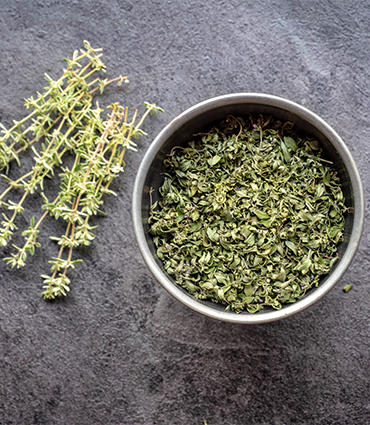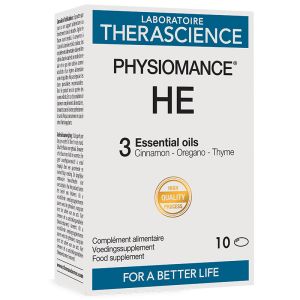
Thyme

Latin name:
Thymus vulgaris L.
Common name:
Tijm – Spaans tijm
Family:
Lamiaceae
Origin:
Mediterranean region / Greece
Part of the plant used:
Flowering tops
Description
As soon as his name is evoked, he transports us to Provence and we hear the song of the cicadas. Farigoule, also called "thyme" by non-Provencal people, is a small plant of the Lamiaceae family, a real concentrate of health benefits, flowering well in the sun.
Its flowering tops are used in phytotherapy. They are composed of flavonoids (apigenin, thymonin), phenolic acids, and also contain polysaccharides.
Thyme, Thymus vulgaris but also Thymus zygis, is used in phytotherapy and aromatherapy for its powerful anti-infectious properties.
Het stimuleert de eetlust en heeft de reputatie gewichtstoename te bevorderen, met name dankzij de aanwezigheid van steroïde saponosiden.
Aromatherapy
Thyme offers an essential oil (HE) whose properties differ according to its chemical composition (chemotype). An EO of thyme with linalool (a monoterpenol) gives it antibacterial, antifungal, antiviral and antiparasitic activity. However, an essential oil of thyme with cineole (an oxide) is a decongestant for the bronchopulmonary sphere.
Phytotherapy
Thyme has bronchial antispasmodic properties and acts on the respiratory tract. This plant is used for its antioxidant properties which help to protect the body against the free radicals responsible for oxidative stress on the cells. In addition, thyme is anti-inflammatory and immunomodulating. Its use is indicated in cases of cough, bronchitis, but also in cases of gastrointestinal disorders, thanks to its digestive properties.
The benefits
- Thyme is traditionally used to aid digestion and for its de-worming action. It supports the body's natural defenses and helps fight against pathogens (bacteria, viruses, parasites and fungi).
Our products based on Thyme
-
As low as €14.10In stock











